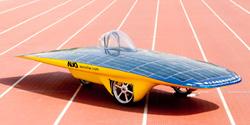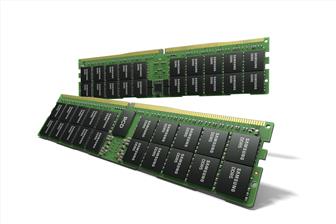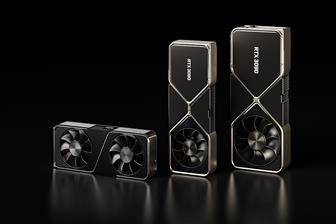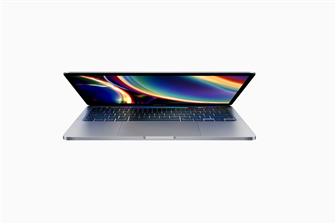
AU Optronics (AUO) has announced that the company is one of the main sponsors of Apollo VI, a solar car created by Taiwan's National Kaohsiung University of Applied Sciences.
Apollo VI is covered with high-efficiency solar cells provided by AUO. The solar cells could generate more than 1200W of electricity and enable the car to reach a maximum speed of 120 km/h.
Apollo VI is 4.7 meters in length, 1.8 meters in width, and 1.1 meters in height, and weighs around 130 kilograms without the driver and battery. The whole vehicle is covered with high-efficiency back contact monocrystalline solar cells in the area of six square meter sponsored by AUO. With 20W of power consumption per kilometer, the solar car could reach more than 120 km/h while the average speed is around 80 km/h.

Samsung HKMG DDR5
Samsung Electronics has expanded its DDR5 DRAM memory portfolio with a 512GB DDR5 module...
Photo: Company

Nvidia GeForce RTX 30 series GPUs
Nvidia's GeForce RTX 30 series GPUs are powered by the company's Ampere architecture. The...
Photo: Company

Apple HomePod mini
Apple's HomePod mini is the newest addition to the HomePod family. At just 3.3 inches tall,...
Photo: Company

Apple 13-inch MacBook Pro with Magic Keyboard
Apple has updated the 13-inch MacBook Pro with the new Magic Keyboard for an improved typing...
Photo: Company

Apple iPad Pros
Apple's new iPad Pros comes with the latest A12Z Bionic chip, an ultra-wide camera, studio-quality...
Photo: Company
- Huawei's latest AI processors were made by TSMC (Oct 22) - Bloomberg
- Arm to scrap Qualcomm chip design license in feud escalation (Oct 23) - Bloomberg
- Embedded World brings 3,500 visitors to 1st US outing (Oct 11) - EE Times
- Preparing electronics engineering students for industry (Oct 8) - EETimes Europe
- Former Apple hardware chief Dan Riccio is retiring (Oct 11) - Ars Technica
- Key takeaways as China outlines plans to revive economy, end housing slump (Oct 11) - Bloomberg
- Taiwan's president vows to resist 'annexation' (Oct 10) - BBC News
- Indonesia asks Apple, Google to block China's Temu to protect small merchants (Oct 11) - Reuters
![]() Microsoft's custom chip sets new industry benchmark while deepening AI partnerships across sectors
Microsoft's custom chip sets new industry benchmark while deepening AI partnerships across sectorsAs Microsoft transitions from a software giant to a cloud leader, with its cloud business now accounting...
![]() Startups and innovations
Startups and innovationsTake a look at the innovative ideas, products and services that startups offer.

CSP in-house development of ASIC accelerators
Google TPUs will see a share of over 70% in the in-house developed cloud ASIC accelerator market in 2024; an all-optical network...

AI chip market outlook 2023-2028: Insights from demand and supply perspectives
The growing demand for AI computational power is accelerating advancements in hardware and chip technology, necessitating innovation...

Automotive CIS tech development, 2024
The popularization of autonomous driving is boosting demand for automotive CIS with LFM and HDR being mainstream development...






